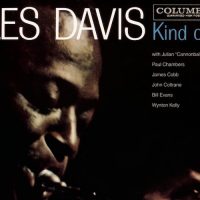 As we like to note here so many times, there’s a lot of Miles Davis sidemen who have gone on to have notable careers of their own. Just among keyboardists, you’ve got your Bill Evans, Wynton Kelly, Herbie Hancock, Keith Jarrett and Chick Corea.
As we like to note here so many times, there’s a lot of Miles Davis sidemen who have gone on to have notable careers of their own. Just among keyboardists, you’ve got your Bill Evans, Wynton Kelly, Herbie Hancock, Keith Jarrett and Chick Corea.
There’s another fine piano player who belongs in that exalted group, too: a smooth character from Dallas, Texas named Red Garland.
True, Red never made any music that changed jazz the way that most of those cats did, but he was obviously deeply respected among his peers, influenced some of those Miles pianists who followed him and consistently made some darned good music before his death in 1984. His contributions to seminal Miles albums like Cookin’ and Milestones (where Miles sat out on “Billy Boy” because he found nothing to add to Garland’s piano work) were important. Garland also co-led albums with Coleman Hawkins and John Coltrane—we previously profiled a track from that collaboration— and played for other notables like Lester Young, Charlie Parker and Art Pepper.
Miles liked Garland for an uncluttered approach that reminded him of Ahmad Jamal and for his immense ability to swing. Moreover, Garland’s trademark pretty block chords was a style that was a good match for Davis’ music during his 1955-58 stint in the Miles Davis Quintet.
Even before Garland departed Miles’ first great quintet, he was already making trio records with Davis bandmate Paul Chambers on bass and the prolific Art Taylor on drums. They’re all good records, even if there’s not much to distinguish one from the other, but the third one Groovy is most probably the pick of the litter.
There’s been a lot of standout versions of Duke Ellington’s “C-Jam Blues” recorded, but the version rendered here is the most memorable to me. Garland shows his tremendous sense of swing and deep understanding of the blues. As with his other records of the time, Red follows a burner with a ballad, and this time it’s the rueful “Gone Again” that’s a nice display of Red’s fluid block chords.
“Will You Still Be Mine” features snappy brush work by Taylor, Chamber’s aggressive bowed bass solo and Garland’s light-footed single-line notes in the upper register. “Willow Weep For Me” is stretched out to nearly ten minutes, but Garland can’t seem to run out of ideas. Chambers supplies his familiar, woody bass solo after Red is done.
On the mid-tempo groover “What Can I Say (After I Say I’m Sorry)?” Garland’s mastery of placing the right notes instead of the most notes is one of the very things that Miles found attractive in his playing. “Hey Now” is the sole original, which Garland built from a simple but effective blues riff.
This past July 1, Groovy was reissued in remastered form with the remastering chores done by none other than the legendary engineer who recorded the original tapes, Rudy Van Gelder. This record is just one of several classic Prestige jazz recordings that have been getting the RVG treatment this year. With Van Gelder’s re-freshening, both Chambers’ and Taylor’s important contributions become illuminated better, with the drumming coming forth crisper and the bass’ discreet strums easier to detect.
All of which makes this an opportune time to get introduced to Miles Davis’ most overlooked of a long line of great piano players. This latest issue of Groovy is the place to start.
Purchase: The Red Garland Trio – Groovy (Rudy Van Gelder Remaster)


